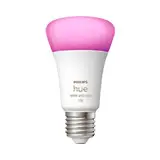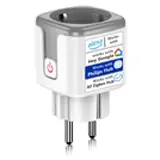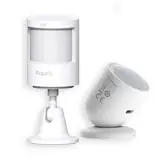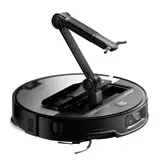We use information collected through cookies and similar technologies to improve your experience on our site, analyze how you use it and for marketing purposes.
Your privacy settings
We and our partners use information collected through cookies and similar technologies to improve your experience on our site, analyze how you use it and for marketing purposes. Because we respect your right to privacy, you can choose not to allow some types of cookies. However, blocking some types of cookies may impact your experience of the site and the services we are able to offer. In some cases, data obtained from cookies is shared with third parties for analytics or marketing reasons. You can exercise your right to opt-out of that sharing at any time by disabling cookies.
Manage Consent Preferences
Necessary
Always ON
These cookies and scripts are necessary for the website to function and cannot be switched off. They are usually only set in response to actions made by you which amount to a request for services, such as setting your privacy preferences, logging in or filling in forms. You can set your browser to block oralert you about these cookies, but some parts of the site will not then work. These cookies do not store any personally identifiable information.
Analytics
These cookies and scripts allow us to count visits and traffic sources, so we can measure and improve the performance of our site. They help us know which pages are the most and least popular and see how visitors move around the site. All information these cookies collect is aggregated and therefore anonymous. If you do not allow these cookies and scripts, we will not know when you have visited our site.
Embedded Videos
These cookies and scripts may be set through our site by external video hosting services likeYouTube or Vimeo. They may be used to deliver video content on our website. It's possible for the video provider to build a profile of your interests and show you relevant adverts on this or other websites. They do not directly store personal information, but are based on uniquely identifying your browser and internet device. If you do not allow these cookies or scripts it is possible that embedded video will not function as expected.
Google Fonts
Google Fonts is a font embedding service library. Google Fonts are stored on Google's CDN. The Google Fonts API is designed to limit the collection, storage, and use of end-user data to only what is needed to serve fonts efficiently. Use of Google Fonts API is unauthenticated. No cookies are sent by website visitors to the Google Fonts API. Requests to the Google Fonts API are made to resource-specific domains, such as fonts.googleapis.com or fonts.gstatic.com. This means your font requests are separate from and don't contain any credentials you send to google.com while using other Google services that are authenticated, such as Gmail.
Marketing
These cookies and scripts may be set through our site by our advertising partners. They may be used by those companies to build a profile of your interests and show you relevant adverts on other sites. They do not store directly personal information, but are based on uniquely identifying your browser and internet device. If you do not allow these cookies and scripts, you will experience less targeted advertising.






Smart security systems for businesses
Worried about your business's security? You don't have to lose sleep anymore! Smart security systems have arrived to revolutionize how we protect our businesses. Forget traditional alarms and welcome the era of proactive and intelligent security.
What are Smart Security Systems for Businesses?
An intelligent security system is not just an alarm. It's a comprehensive solution that combines different technologies to protect your business more efficiently and adaptably. Think about security cameras with artificial intelligence, motion sensors that learn your patterns, and access control systems that are managed from your phone. It's like having a virtual bodyguard!
Key Components of a Smart Security System
Benefits of Implementing a Smart Security System
Investing in a smart security system for your business offers a range of benefits that go beyond simply protecting against theft. Below, we detail some of the most important advantages:
Greater Security and Protection
The main benefit is, obviously, greater security. Intelligent systems use advanced technologies to detect threats early and respond effectively.
False Alarm Reduction
Tired of false alarms? Smart systems use advanced algorithms and sensors to minimize false alarms, saving you time and money.
Remote Monitoring and Total Control
Manage your business from anywhere, anytime. Through a mobile app, you can view cameras in real-time, arm and disarm the alarm, and receive instant notifications about any event.
Collection of Valuable Data
Intelligent systems can gather valuable data about customer behavior, people flow, and operational efficiency. This information can be used to improve decision-making and optimize business performance.
Crime Deterrence
The visible presence of security cameras and other smart devices can deter criminals from attempting to rob or damage your business.
Integration with Other Systems
Intelligent systems can integrate with other business systems, such as the inventory management system, the access control system, and the energy management system. This allows for greater automation and efficiency.
Practical Examples of Smart Security Systems in Action
To give you an idea of how smart security systems work in practice, here are some examples:
How to Choose the Right Smart Security System for Your Business
With so many options available, choosing the right smart security system for your business can be challenging. Here are some tips to help you make the best decision:
Assess Your Security Needs
Before you start looking for a system, thoroughly analyze your security needs. What areas of your business are most vulnerable? What kind of threats worry you the most? What's your budget?
Investigate the Suppliers
Thoroughly investigate smart security system providers. Look for online reviews, ask for references, and compare prices and features. Make sure the provider has a good reputation and offers good customer service.
Think about scalability.
Make sure the system you choose is scalable, meaning it can adjust to your changing business needs. You could start with a basic system and then add more features and devices as your business grows.
Prioritize ease of use.
Choose a system that's easy to use and manage. The interface should be intuitive, and the functions should be easy to understand. A complicated and difficult-to-use system can be counterproductive.
Check Compatibility
Make sure the system works well with other devices and systems you already use in your business. Integrating with other systems can boost efficiency and lower costs.
Recommendations and Best Practices for Implementation
Once you've chosen the right smart security system, it's important to install it properly to maximize its effectiveness. Here are some recommendations and best practices:
Plan the Installation
Plan the installation carefully. Determine the optimal location for cameras, sensors, and other devices. Make sure the devices are installed correctly and configured according to your needs.
Empower your employees.
Train your employees on how to use the security system. Show them how to arm and disarm the alarm, how to access the security cameras, and how to respond to alerts. A trained staff is essential for an effective security system.
Conduct regular tests.
Conduct regular tests of the security system to ensure it's working properly. Verify that the cameras are recording correctly, the sensors are detecting movement, and the alarm activates in an emergency.
Keep the system updated.
Keep the security system up-to-date with the latest software and firmware updates. Updates usually include security improvements and bug fixes. An outdated system is more vulnerable to attacks.
Review the security recordings regularly.
Check security recordings regularly to spot potential issues or incidents. This can help you prevent theft, identify offenders, and improve your business security.
Establish an Emergency Response Protocol
Establish a clear and concise emergency response protocol. Describe what to do in case of robbery, fire, or other emergency. Ensure that all employees know the protocol and are trained to implement it.
Costs Associated with Implementing Intelligent Security Systems
Understanding the costs involved is crucial for making an informed decision. Here's a breakdown of the main types of costs you should consider:
Start-up costs
Recurring Costs
Cost Comparison Table (Example)
Note: Prices are approximate and may vary depending on the supplier and system specifications.
The Future of Smart Security for Businesses
Smart security is constantly evolving. As technology advances, we can expect to see even more sophisticated and efficient systems in the future.
Artificial Intelligence and Machine Learning
Artificial intelligence and machine learning will play an increasingly important role in smart security. Systems will be able to learn from data and adapt to changing threats. They will be able to predict and prevent incidents before they happen.
Internet of Things (IoT)
The Internet of Things (IoT) will enable the connection of more devices and systems. This will allow for greater automation and control. We will be able to monitor the security of our business from anywhere, at any time.
Cloud Security
Cloud security will become increasingly common. Security data will be stored in the cloud, enabling easier and more secure access. It will also facilitate system management and maintenance.
Conclusion: Protect Your Business Intelligently
In short, smart security systems are an essential investment for any business that wants to protect its assets, employees, and customers. They offer increased security, reduce false alarms, enable remote monitoring, and collect valuable data. Don't wait any longer and make the leap to smart security!
Ready to protect your business with a smart security system? Share this article with your friends and colleagues and start researching the available options! Comment below what you think about smart security and if you already use it in your business!
Related Posts
Meeting room automation: convenience and efficiency
Can you imagine entering a meeting room and everything is ready for you? Lights, projector, videoconferencing... Everything at the touch of a button! Meeting room automation is no longer science fiction. It is a reality that transforms the way we collaborate and optimizes our time. Why automate your meeting room? ...
Office access control with smart locks
Tired of lost keys and obsolete access systems? Your office security is crucial. And with today's technology, there's a smart solution! We're talking about access control with smart locks. They are more secure, more efficient and much more practical than traditional locks. Let's explore how they can transform the security of ...
How to improve productivity with home automation
Can you imagine a world where your home helps you be more productive? Stop dreaming. Home automation is already here. It's not just about lights that turn on by themselves. We're talking about a system that optimizes your environment so you can focus and achieve more in less time. Forget about...
Office lighting and climate automation
Imagine walking into your office. The lights gently turn on as you enter. The temperature is perfect, not too cold, not too hot. Everything is adjusted automatically. Sound like science fiction? Not at all! It's the automation of lighting and climate control in the office, and it's transforming the way we work. What is automation…